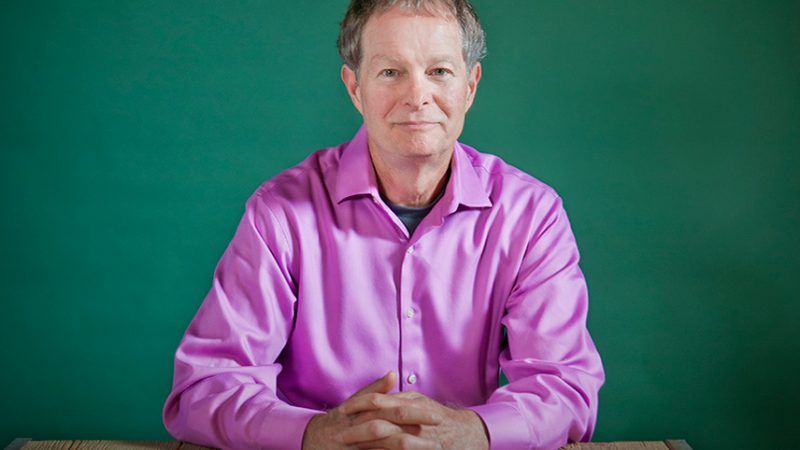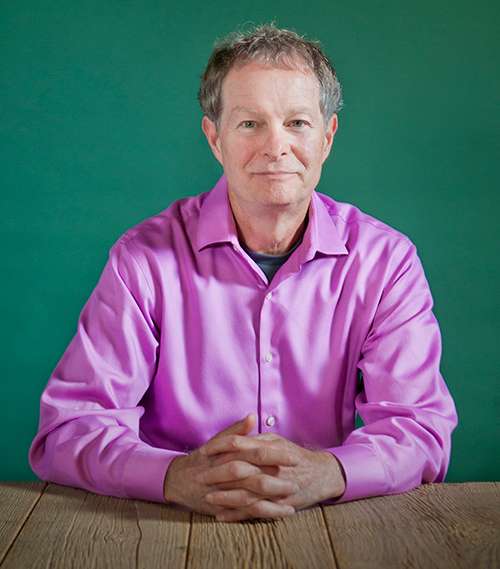John Mackey's Merger Made in Heaven


When John Mackey founded Whole Foods Market nearly 40 years ago in Austin, he revolutionized the way Americans think about health food. Last year he helped change the game again when he announced that Whole Foods had been bought by Amazon for just under $14 billion. Overnight, America's most innovative grocery store and its most innovative everything-else store were one and the same. At LibertyCon in March, Reason's Nick Gillespie spoke with Mackey (a donor to Reason Foundation, the nonprofit that publishes this magazine) about falling in love with the Amazon worldview and what might be coming next.
Q: So Whole Foods has merged with Amazon. Are you excited about that?
A: I'm superexcited. I'll tell you a story: Whole Foods was being harassed by shareholder activists who were trying to take over our board, and they were putting a lot of pressure on our company to go up for sale. We didn't really want to sell it, but if we were going to be forced into a sale, I wanted to find absolutely the best possible partner and not just be taken over by a company that didn't share our values. So a mutual friend introduced us.
We flew out to Seattle and met with [Amazon founder] Jeff Bezos and three of his senior executives. You know when you have the experience of falling in love? There comes a point where you have what I call "the conversation," where you may stay up all night and you just have this real connection, this "meeting of the soul," so to speak? That happened on our first conversation. We were thunderstruck. They were so smart, and they were so authentic, and we were almost finishing each other's sentences by the time we left there a few hours later. Our executive team went to a restaurant, and we were sitting around and just like, "Those guys are incredible! Do you think they liked us, too?" It turned out they did—Amazon felt the same way. They had a whole group of executives come down four days later to Austin, and then literally six weeks after that first meeting we signed the marriage papers. It went that fast.
Q: What was the common ground that clicked?
A: We're about, "Customers are our most important stakeholder." Amazon goes beyond that: They're obsessed. Their top core value is that they always put the customers first. So we synced up on that almost immediately.
And then both companies are very innovative. At Whole Foods, we're doing amazing things all the time. Amazon admires us for that, and I don't know of a more innovative company than Amazon. So we thought, "If we could get together…"
Q: You're going to have beautiful children.
A: Yes. We're going to reinvent the supermarket business as we know it. We're going to get food to people less expensively. Both companies are dedicated to the long-term view. At Whole Foods, we were having to focus more and more and more on the very short-term, quarterly to quarterly earnings, something I swore we would never do. But I felt like maybe the company wasn't going to survive [if we didn't]. Amazon has given us the freedom to think long-term again.
Q: Is traditional retail dead, or is it dying?
A: It is dying. Here's where I think we're heading: People can get anything they want, at any time they want it, anywhere they want it, at a price that they're willing to pay.
Q: That sounds like a pretty good place.
A: It's a consumer utopia. But that means a lot of established businesses are going to fail, and that's very scary. The economic powers that have political clout, they don't want to be disrupted. And they will go to the government and scream for protection. "Stop this merger" or "Amazon needs to be investigated." That's all just vested economic interests trying to use the coercive power of government to protect themselves from competition.
This interview has been condensed and edited for style and clarity. For a video version, visit reason.com.
This article originally appeared in print under the headline "John Mackey's Merger Made in Heaven."


Hide Comments (0)
Editor's Note: As of February 29, 2024, commenting privileges on reason.com posts are limited to Reason Plus subscribers. Past commenters are grandfathered in for a temporary period. Subscribe here to preserve your ability to comment. Your Reason Plus subscription also gives you an ad-free version of reason.com, along with full access to the digital edition and archives of Reason magazine. We request that comments be civil and on-topic. We do not moderate or assume any responsibility for comments, which are owned by the readers who post them. Comments do not represent the views of reason.com or Reason Foundation. We reserve the right to delete any comment and ban commenters for any reason at any time. Comments may only be edited within 5 minutes of posting. Report abuses.
Please to post comments
Mute this user?
Ban this user?
Un-ban this user?
Nuke this user?
Un-nuke this user?
Flag this comment?
Un-flag this comment?